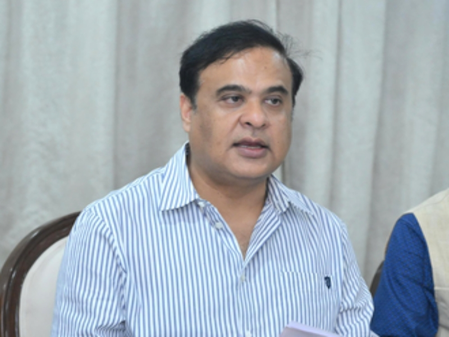
Guwahati, June 14 (IANS) In a sharp critique echoing the long-standing security concerns of India’s strategic establishment, Assam Chief Minister Himanta Biswa Sarma on Saturday called out the Congress for what he described as a “historic blunder” — India’s failure to prevent Pakistan from acquiring nuclear weapons in the 1980s.
Posting on X, Sarma said the missed opportunity to neutralise Pakistan’s Kahuta enrichment facility remains a cautionary tale in India’s strategic history.
Drawing from intelligence archives and declassified diplomatic anecdotes, Sarma highlighted that the Research and Analysis Wing (RAW) had definitive proof of Pakistan’s uranium enrichment activities at the Kahuta plant during the early 1980s.
According to the Assam CM, Israel had reportedly extended an offer to collaborate on a joint pre-emptive strike, even shortlisting India’s Jamnagar Air Base for the mission.
India’s military brass, too, had given its nod for surgical action — yet political hesitation sealed a different fate.
CM Sarma accused then Prime Minister Indira Gandhi of backing down in the eleventh hour, fearing geopolitical backlash, while her successor Rajiv Gandhi eventually scrapped the plan altogether, succumbing to international pressure in favor of diplomacy.
“This indecision,” Sarma wrote, “paved the way for Pakistan’s nuclear test in 1998 and the consequent arms race that destabilised the subcontinent.”
The fallout, Sarma argued, has been deeply consequential.
He pointed to the 1988 India-Pakistan nuclear non-aggression pact signed by Rajiv Gandhi and Benazir Bhutto as a symbol of misplaced trust.
The following decade saw Pakistan not only crossing the nuclear threshold but also emboldening its proxy war machinery.
“Pakistan’s nuclear umbrella,” Sarma asserted, “has enabled cross-border terrorism and given Islamabad diplomatic impunity under the guise of deterrence.”
In a pointed political swipe, Sarma also referenced the 2024 manifesto of CPI-M — a key ally of the opposition INDIA bloc — which proposed dismantling India’s nuclear deterrence.
“At a time when rogue states use nuclear threats as policy tools, such thinking,” he wrote, “is dangerously naive.”
Framing the episode as a “lesson in leadership,” Sarma concluded that where India needed courage, Congress chose caution.
“The cost of that hesitation,” he wrote, “is a strategic burden the nation continues to carry to this day.”
–IANS
tdr/pgh



